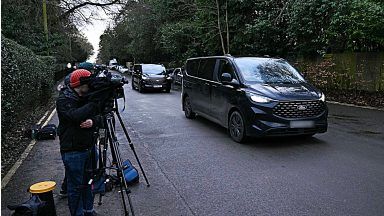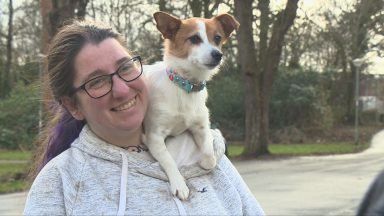Nicola Sturgeon has said the new coronavirus variant “is the most significant and concerning” development of the pandemic in recent months.
The First Minister made the comments as six African countries were added to the red list over emerging B.1.1.529 variant, which has since been detected in Europe.
Travellers arriving in the UK from South Africa, Namibia, Lesotho, Botswana, Eswatini and Zimbabwe between midday on Friday and 4am on Sunday will be forced to isolate for ten days and take two PCR tests.
People arriving in the UK from the six countries after 4am on Sunday will be required to book and pay for a government-approved hotel and quarantine for ten days.
The European Commission has since recommended that EU countries put an “emergency brake” on travel from southern Africa.
The World Health Organisation will decide later on Friday ifB.1.1.529 should be classed as “a variant of concern”.
On Friday, the First Minister tweeted: “We need more data to help us better understand the new B.1.1.529 variant – and it would be premature to ‘press the panic button’ – but it is the most significant and concerning Covid development of recent months, and so we must take it seriously and act on a precautionary basis.”
Belgium is the first European country to announce a case of the new variant, which has also been detected in Hong Kong and Israel.
Belgian health minister Frank Vandenbroucke said: “We have one case of this variant that is confirmed. It’s someone who came from abroad.”
Marc Van Ranst, who works with the Rega Institute in Belgium, tweeted that a sample was confirmed as the variant in a traveller who returned from Egypt on November 11. The patient first showed symptoms on November 22.
UK health secretary Sajid Javid told the Commons on Friday that experience has shown “we must move quickly and at the earliest possible moment”, adding there were concerns the variant may be more transmissible, make vaccines less effective and may affect one of the UK’s Covid treatments, Ronapreve.
Scientists have said B.1.1.529 is the “most worrying” variant they’ve seen so far, with around “30 different mutations” – double that of the Delta variant.
Dr Susan Hopkins, chief medical adviser of the UK Health Security Agency (UKHSA), told the Today programme: “If we look at those mutations, there’s mutations that increase infectivity, mutations that evade the immune response both from vaccines and from natural immunity, mutations that cause increased transmissibility.
“It’s a highly complex mutation, there’s also new ones that we have never seen before.”
She added that one of the mutations in the variant is very similar to one in Alpha, which means it can be detected quite easily with PCR tests.
Follow STV News on WhatsApp
Scan the QR code on your mobile device for all the latest news from around the country


 iStock
iStock

























